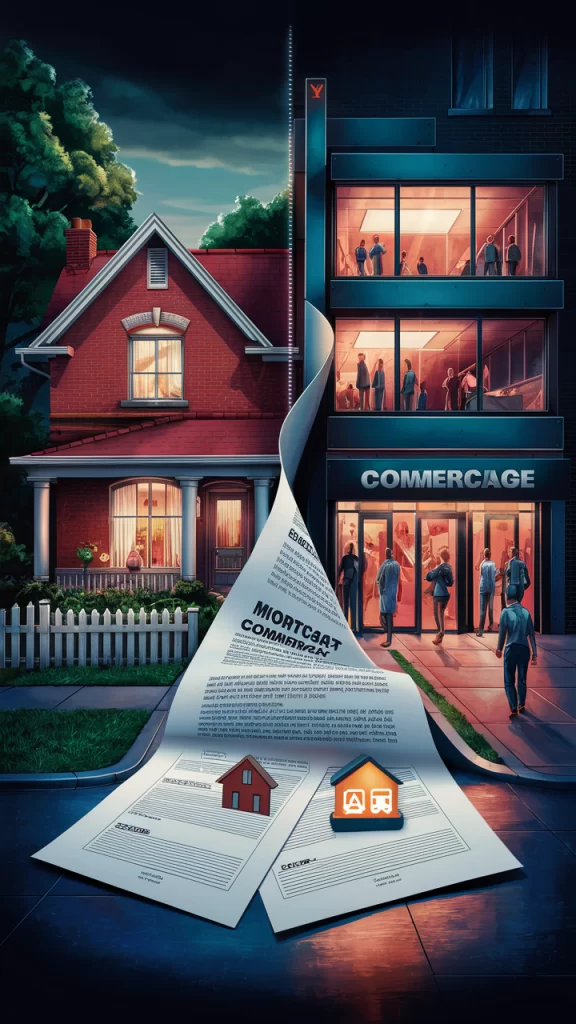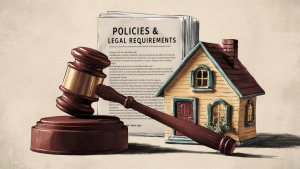
Airbnb Guest: A Host’s Guide to a Memorable Start
Facebook Twitter LinkedIn Reddit Email WhatsApp Welcome Your First Guest on Airbnb: A Host’s Guide to a Memorable Start Welcoming your first guest on Airbnb
When it comes to real estate loans, many factors play a role in determining whether a property is a viable investment or suitable for development. One of the key considerations that both lenders and borrowers must understand is zoning laws. Zoning regulations can significantly impact the type of loan a buyer qualifies for and how a property can be used, making them an essential element in the loan approval process.
Zoning laws are regulations set by local governments to control how land in a particular area can be used. These laws divide land into different zones such as residential, commercial, industrial, and agricultural. Each zone has specific rules regarding what can be built there, the types of activities that can take place, and the size and shape of buildings.
When you apply for a real estate loan, the lender will evaluate not just the financial aspects of the deal but also the zoning of the property. Zoning laws can influence the loan process in several key ways:
The zoning designation of a property often determines the type of loan you can obtain. For example, if you’re purchasing a residential property, you would apply for a residential mortgage. However, if the property is zoned for commercial use, you may need a commercial real estate loan, which often has different terms and interest rates. This distinction is important because using a property in a way that doesn’t align with its zoning can lead to legal complications and loan denials.

Zoning can also affect the property’s market value, which impacts the loan amount you can qualify for. A property in a desirable zone, such as one designated for commercial use in a high-traffic area, might have a higher appraised value. Conversely, if a property is in a zone with heavy restrictions, it may be less valuable, which could limit the size of the loan. Lenders typically require an appraisal to ensure that the property value aligns with the requested loan amount.
Zoning laws also dictate the development potential of a property, which can influence whether a lender approves the loan. For instance, if a borrower intends to develop a multi-family housing project on a piece of land, but the zoning only allows for single-family homes, the lender may reject the loan application or require rezoning before approving the loan. Developers and investors should carefully review zoning laws before purchasing land or applying for a loan to ensure that their plans align with local regulations.
Lenders assess the risk involved in a loan, and changes in zoning can add an element of uncertainty. For example, a city might rezone an area from commercial to residential use, which could lower property values or change the type of loans that can be issued. Lenders will often scrutinize local zoning policies and any proposed changes before approving loans, particularly for commercial or investment properties. If there is a risk of zoning changes that could negatively impact the property, a lender may deny the loan or adjust the terms.
Understanding zoning laws can help you make informed decisions when applying for a real estate loan. Here are a few tips to consider:
Consult Local Zoning Authorities: Before purchasing a property or applying for a loan, check with local zoning authorities to understand the zoning regulations that apply to the property.
Review the Zoning Map: Most cities and municipalities provide zoning maps that outline how different areas are zoned. Reviewing this can give you an idea of the development potential and restrictions for the property you’re interested in.

Work with an Experienced Lender: Choosing a lender who understands the impact of zoning laws can make the process smoother. They can help you navigate potential challenges and ensure the property’s zoning aligns with your intended use.
Plan for the Future: Consider the long-term implications of zoning laws. If you anticipate that zoning changes could occur in the area, factor this into your decision-making process when applying for a loan.
“If you don’t own a home, buy one. If you own a home, buy another one. If you own two homes buy a third. And lend your relatives the money to buy a home.”
John Paulson Tweet
Zoning laws play a crucial role in the real estate loan process. Whether you’re a first-time homebuyer, an investor, or a developer, understanding how zoning affects property use, value, and loan approval is essential for making sound financial decisions. By staying informed and working with experienced professionals, you can avoid potential pitfalls and ensure your property aligns with local zoning requirements, paving the way for a successful real estate transaction.

Facebook Twitter LinkedIn Reddit Email WhatsApp Welcome Your First Guest on Airbnb: A Host’s Guide to a Memorable Start Welcoming your first guest on Airbnb

Facebook Twitter LinkedIn Reddit Email WhatsApp Mastering Airbnb Policies and Legal Requirements: A Guide for Hosts If you’re considering hosting on Airbnb, understanding the platform’s

Facebook Twitter LinkedIn Reddit Email WhatsApp The Anatomy of a Perfect Airbnb Listing Creating an irresistible Airbnb listing is both an art and a science.